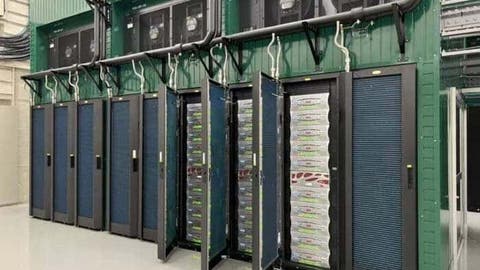Japan’s Ministry of Economy, Trade, and Industry (METI) has announced its plans to develop a new supercomputer to help advance the country’s artificial intelligence (AI) industry. The new supercomputer (SC) will be operated by the National Institute of Advanced Industrial Science and Technology (AIST). According to Nikkei, the SC will also be open to Japanese brands. Reuters reports that the project is part of Japan’s efforts to stay competitive in the global AI race. However, CNBC reports that the project is also to address the country’s urgent need for increased computing power in AI development. In this article, we will discuss the details of Japan’s new supercomputer project and its potential impact on the AI industry.
According to Hideki Murai, a special AI adviser to Prime Minister Fumio Kishida, Japan needs to quickly expand its computing power. Murai claims that the country is vying to become a global leader in AI tech. He said
“The government’s key priority is computing power. We feel a real sense of crisis about that … We want to create the foundations for an AI era,”.
Japan’s Need for Increased Computing Power in AI Development
Japan has been lagging behind other nations in the development of generative AI and large language models (LLMs). The report also believes that this is mainly due to its lack of computing power. Reuters, quoting Murai, a govt adviser claims that Japan needs a computing power surge to stay in the AI race. The country’s existing SCs are not powerful enough to handle the massive amounts of data required for AI research. As a result, AI brands in Japan have been relying on cloud services from foreign brands. According to CNBC, this comes at a huge cost and also poses some sort of security risk.
Japan’s New Supercomputer Project
According to BBN and MarketingAsia, there is an urgent need for better computing power in Japan’s AI industry. These reports claim that the new SC project aims to tackle this dire situation. CNBC claims that this new SC will specialize in LLM training to promote Japan’s development of generative AI.
According to Nikkei, the project should cost around 50 billion yen ($450 million) and will be ready by 2025. Also, it reveals that SC will have a processing speed of 100 petaflops, making it one of the fastest in the world. At the moment, there is an SC at AIST that offers 0.8 exaflops of computing power. This is what about 3000 brands in Japan are using. Thus, this project is a huge upgrade from what the country already has. There are also reports that the project will come with a quantum annealing machine. This means that it will be able to solve complex optimization problems.
The SC will be operated by AIST, which is known for its research on quantum tech. AIST will use the SC for its own research on quantum tech and will also open it to Japanese brands. This will give Japanese companies access to the computing power they need to develop AI technologies and stay competitive in the global AI race.
Potential Impact on the AI Industry
Japan’s new supercomputer project has the potential to significantly impact the country’s AI industry. With increased computing power, Japanese companies will be able to develop more advanced AI technologies, such as generative AI and LLMs. This could lead to the creation of new AI uses and services. This could also drive economic growth and create new job options. It could also help Japan catch up with other nations in the AI race and establish itself as a leader in the field.
In addition, the new supercomputer could reduce Japan’s reliance on foreign cloud services for AI development. This could also improve its data security and reduce costs for Japanese brands. It could also help Japan establish itself as a leader in AI research and development.
Final Words
Japan’s METI plans to develop a new supercomputer to help advance the country’s AI industry is a huge step towards tackling the nation’s urgent need for increased computing power in AI development. The new SC, which will be operated by AIST and open to Japanese brands, has the potential to impact the country’s AI industry by enabling the development of more advanced AI techs and reducing Japan’s reliance on foreign cloud services. It could also help Japan catch up with other countries in the AI race and establish itself as a leader in the field.
